India's dream to be in the forefront of international politics has come true.
India has placed itself firmly as a major player in the shaping of a new world order, observes Ambassador T P Sreenivasan.
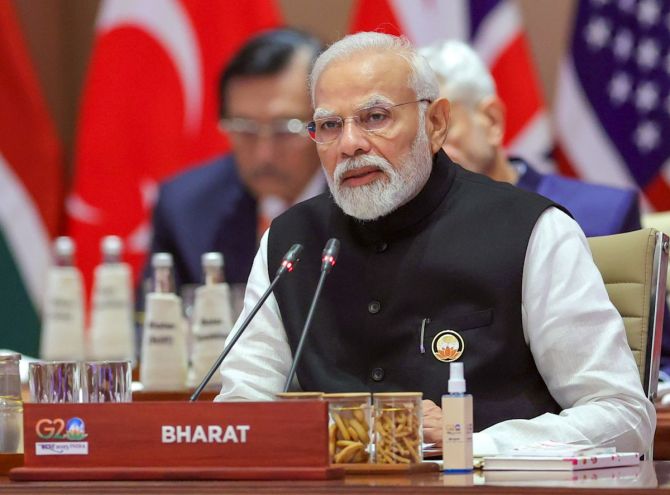
Never before has a major international conference held in India fulfilled every aspiration of the host country without any glitch on the way.
India shaped the meetings and the agenda in accordance with Prime Minister Narendra D Modi's vision and no one except China challenged the motto given to the conference (Vasudhaiva Kudumbakam).
That phrase was included in the Leaders' Declaration even though Sanskrit is not one of the official languages of the United Nations, Even PM Modi's words to President Putin, 'Today's era must not be of war' have become part of the New Delhi Leaders' Declaration.
India's imprint is everywhere, in the agenda, in the various decisions on economic matters and also in the paragraphs on geopolitics.
The inescapability of dealing with the war was recognised by India at the very beginning and contributed to it without shying away from criticising Russia without naming it.
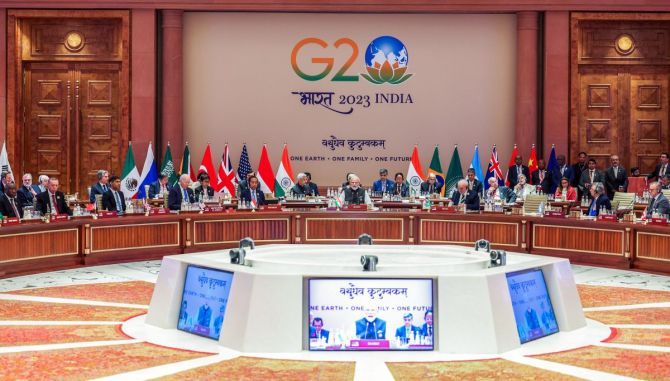
The fact that the Declaration was approved on the first day itself was a master stroke as it removed the uncertainty of the outcome of the discussions.
On most occasions, such agreements are reached in the wee hours of the morning when the delegates become exhausted enough to agree to anything to catch some sleep.
There have been cases when the clock was stopped not to extend the conference for another day for technical reasons.
With clear statements on the real agenda of the summit, the atmosphere became relaxed and the heads of delegations were able to do their bilateral work in a calm atmosphere.
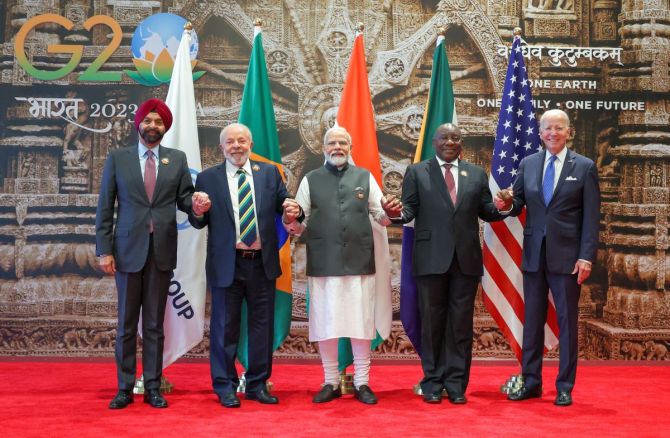
The consensus on the war was obtained by an intelligent selection of words and sentences from the UN Charter, which nobody could object to.
That method worked very well and the Russians got a better formulation than what they got in Bali.
It was very evident as to who was meant when all nations were asked to follow the principles of the Charter. But it appears that the Russians accepted the exhortations because the drafters offered them a reiteration of the national positions and resolutions adopted at the UN Security Council and the General Assembly and a statement that 'There were different views and assessments of the situation.'
As President Macron stated, the Declaration is not a victory for Russia, but by stating general principles rather than demanding action, the summit made it possible for Russia to join the consensus.
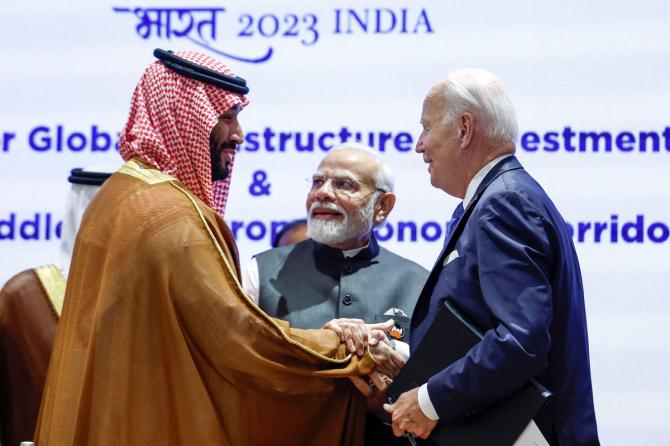
The Delhi Declaration was more favourable to Russia than the Bali Declaration, as expected because of the Indian position.
The Delhi Declaration will have no impact on the situation on the ground in Ukraine and both sides have not even refrained from attacks even during the summit and after.
The higher level of support that the US has pledged to Ukraine flies in the face of the desire of the summit to end the war, particularly for the sake of the Global South, which has taken the brunt of the war.
The other parts of the Declaration on various measures to improve connectivity and human-centred developments based on 'One Earth, One Family and One Future' would have been weaker without taking a position on the war.
As has been asserted in the Declaration, G20 is not the platform to resolve geopolitical and security issues, but without a consensus on the war situation, the summit would have lost its credibility and relevance.

The emergence of a Global South with a voice of its own was the most significant achievement of the summit.
The Nonaligned Movement and G 77 worked in their own exclusive environments, but here, the decisions of the summit were taken with the participation of the North.
It is an anomaly that Russia and China are now part of the Global South and we can expect that China will make a determined effort to take its leadership by giving generous assistance to the member States. But President Xi Jinping's absence and India's diplomatic victory have given us the lead for the present.
China might concentrate on BRICS as representing the Global South as it has a dominating presence there.
However, a brick has been built to form the foundation of a new global order and what remains is to find the mortar to stabilise it.

Getting the African Union as a member of G20 on the strength of the European Union being there is an emotional gesture to the African continent.
It has made G20 more populous and broad.
India took the lead as part of our effort to reestablish India's bonds with Africa. But its participation in G20 will be effective if only it becomes a unified force, which speaks with one voice.
The membership of G20 will hopefully provide the incentive for the African Union to have a cohesive voice in world affairs without being exploited by external powers.
The urgent need to revive the pursuit of Sustainable Development Goals, the need to address the hopeless state of affairs of climate finance and the inequities of the world belong to the old agenda and these have been reiterated forcefully by G20.
In addition, new initiatives like digital public infrastructure, India, Middle East Europe Connectivity Corridor, biofuel initiative, strengthening the global health architecture, closing of gender gaps and reform of the UN and international financial institutions are a wish list, whose implementation will depend on the influence of the proposers and availability of resources.
They are valuable in identifying the needs and indicating the way forward, but, without a monitoring mechanism or a permanent secretariat, systematic review and implementation are not likely.
India's proposal to have a virtual summit to review progress before Brazil takes over is a good idea, but many may not be enthusiastic about it.

Given the Western preoccupation with the internal situation in India and its human rights record, it was expected that some voices would be heard by way of criticism and advice on these matters. But no such voices were heard in the bustle of the activities in the Bharat Mandapam.
Subsequently, President Biden made it known that he had raised the human rights issues with PM Modi. But curiously, a paragraph from one of the United Nations General Assembly Resolutions on religious tolerance and freedom found its way as paragraph 78 of the Leaders' Declaration.
It is not clear as to who proposed it and how it was adopted.
The Indian delegation may have treated it as an accepted language, which applies to different situations and not specific to India. But it may be quoted on occasions by vested interests as a criticism of India.

The way India turned G20 into a year-long activity with innumerable meetings in different parts of India and abroad and managed to reach valuable conclusions on difficult issues has greatly enhanced India's prestige and stature.
India has also showcased its remarkable achievements from reducing poverty to bringing light to the dark side of the moon.
Prime Minister Modi's stellar performance and indefatigable energy were unanimously applauded by all.
India's dream to be in the forefront of international politics has come true.
India has placed itself firmly as a major player in the shaping of a new world order.
Ambassador T P Sreenivasan is a frequent contributor to Rediff.com.
You can read his earlier columns here.
Feature Presentation: Rajesh Alva/Rediff.com

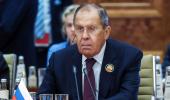









 © 2025
© 2025